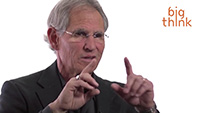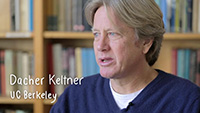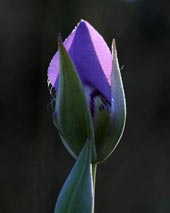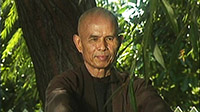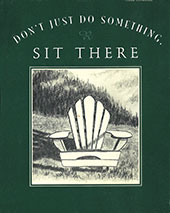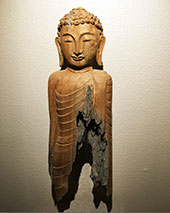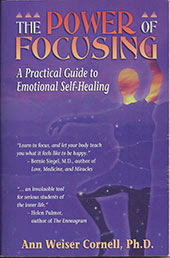What's New
The Palouse Mindfulness website is frequently updated with new material. This page was created for those who would like to see what's changed since their last visit. Pages that are updated at least once a month are the Gallery of Learning, the Graduates' page, the Map of Graduates, and the Quotes page. A page that is fun to look at and changes moment to moment is the Map of Visitors.
— March 4, 2018 —
Gratitude, 365 Grateful Project, and Grand Central Station (New Week 8 videos)
Gratitude, a stunningly beautiful video by Louie Schwartzberg, includes narration by Benedictine monk David Steindl-Rast, and in
The 365 Grateful Project, Hailey Bartholomew describes her inspiring journey of finding something to be grateful for every single day. Also added was a wonderful short video by Sharon Salzberg about cultivating lovingkindness in the most ordinary of places, called
Grand Central Station. "Happiness is Not a Crystal Ball" and Tara Brach's "Happiness" were moved to the Supplementary section.
— February 24, 2018 —
Listening as an Act of Love (New Week 8 video) - video by Jon Kabat-Zinn
This video replaces Jon's "Compassion and Mindfulness" video, which was moved to the "Supplementary" list for Week 7. In this new video, Jon says:
"If listening isn't a compassionate practice, I don't know what is... Just being present and being there for the other, and [simply] hearing, so that we're not thinking and juding and evaluating what the person is saying, but it's going straight to the heart...".
— February 23, 2018 —
Your Thoughts are Bubbles (New Week 3 video) - video by Jon Kabat-Zinn
Jon Kabat-Zinn talks about the idea that meditation is not about getting rid of thoughts, but about changing our relationship to them. To make room for this video, Tara Brach's
Surrender to the Monkeys, has been moved to "Supplementary Materials". A great new Tara Brach video,
Thoughts: "Real, but not True", has been added to the Supplementary section.
Evolutionary Roots of Compassion (New Week 7 video)- video by Dacher Keltner
This video, by Dacher Keltner of U.C., Berkeley, provides evidence for the idea that we, as humans, have a deep-seated inclination to care for others. It replaces the previous one by the same name, which was low-resolution and somewhat dated. In addition to the video being of better quality, this version has more graphics as well as some new material.
— February 14, 2018 —
Practice [February 2018 Graduate Meeting]
There are so many questions one could ask about practice: What does it mean to “practice” mindfulness? Is it necessary to practice in a formal way, such as sitting meditation or yoga? If one is going to have a formal practice, then how long and how often? These are not questions anyone else can answer for us – each of us must find our own way to renew or maintain mindfulness in our lives, one that resonates with who we are. Videos offering compelling evidence that practice really does make a difference were shown at this meeting, including
Mindful Meditation and the Brain and
How Meditation Can Reshape Our Brain.
— January 18, 2018 —
Gratitude [January 2018 Graduate Meeting]
Gratitude can’t be forced or demanded, but can be cultivated. With an eye to what delights us, we naturally find gratitude. What happens when we slow and take notice of all the small things in our lives that bring us a sense of tenderness, safety, amusement, beauty? We may find that the small things are not small at all. How might we develop a gratitude practice? Two short videos were shown at this meeting, one called The
365 Grateful Project by Hailey Bartholomew and a beatiful slide show about
Gratitude by Louie Schwartzberg.
— December 22, 2017 —
On Loss and Death [December 2017 Graduate Meeting]
There is nothing easy about the death of a loved one, or about any major loss, and the paradox is that great loss often precedes great openings. In
The Five Invitations, the video shown at this meeting, Frank Ostaseski, founder of San Francisco Zen Hospice, writes about his many years of hospice work, and gives an introduction to the five invitations and to the book by the same name. In the "Loss and Death" meeting notes is also a link to a wonderful talk by Tara Brach,
Darkness of the Womb: 4 Steps to Transforming Suffering.
— December 4, 2017 —
Welcome to Palouse Mindfulness - video by Dave Potter
This short welcome video is now the first thing that someone coming to the Palouse Mindfulness site sees. Many people have a hard time believing that the course is really, truly, free, and in addition to welcoming new visitors, this message describes how such a rich and complete course came to be totally free and available to anyone who wishes to learn mindfulness, regardless of location or financial resources.
— November 30, 2017 —
Listening [November 2017 Graduate Meeting]
In the video shown at this meeting,
The Art of Being Heard, Susan Piver describes four principles of mindful communication (timing, listening, agenda-less-ness, confidence). Her definition of confidence is not the usual one and may surprise you, especially given the fact that this particular presentation was given to a business audience. The "confidence" Susan is describing has to do with deep listening, entering another person's world, caring about what they say, which may be the most important component of good communication. As Rachel Naomi Remen says,
“I suspect that the most basic and powerful way to connect to another person is to listen. Just listen. Perhaps the most important thing we ever give each other is our attention.”
— September 23, 2017 —
Ten Mindful Movements video by Plum Village and Thich Nhat Hanh
This ten-movement sequence is done by residents of Thich Nhat Hanh’s Plum Village every day and is included in the Palouse Mindfulness course as a gentle alternative to the yoga sequences that are part of weeks 3 and 4. This replaces a low-resolution version that was previously on the site. It is twice as long as the original, making it roughly the same length as the yoga videos used. In this version, the sequence is demonstrated twice, first by a student of Thich Nhat Hanh, and then by Thich Nhat Hanh himself.
— September 14, 2017 —
About Retreats... [September 2017 Graduate Meeting]
On a meditation retreat, especially a multi-day retreat, there are times of calm and peace, but most meditation teachers will tell you that being calm and peaceful is actually not the point of a retreat, and making it a goal will result in the opposite experience. This is true also of a regular meditation practice. Practice is practice, and this means working with all states, not just the pleasant ones. At the meeting, we watched the first two segments of a
Bill Moyers interview of Pema Chodron, which provides wonderful insight into Pema's life and her work, including some rare glimpses into her life before becoming a Buddhist nun. In the first two segments, she touches on the importance of meditation retreats.
— August 17, 2017 —
Forgiveness [August 2017 Graduate Meeting]
At it's heart, forgiveness is a function of deeply understanding our inter-connectedness, the impossibility of assigning ultimate cause, a recognition of the fact that those who are abusive to others are often themselves victims of abuse. Henry Wadsworth Longfellow said:
"If we could read the secret history of our enemies, we should find in each man's life sorrow and suffering enough to disarm all hostility." The video for this month was
Unconditional Love, a 2014 talk by Tara Brach.
— July 13, 2017 —
Self-Compassion [July 2017 Graduate Meeting]
At this meeting, we viewed a video by Kristin Neff I found just this week:
The Space Between Self-Esteem and Compassion. Kristin is the University of Texas psychologist who has made self-compassion and mindfulness her life’s work. Self-compassion may be the most important component of MBSR - it’s the oil that makes the gears of mindfulness work. Without it, the practices are dry at best, and harsh and counter-productive at worst. At the heart of our lack of compassion for ourselves is the lie that many of us grew up with: in order to be successful, we must not only work hard, but we must be hard on ourselves.
— June 15, 2017 —
Being/Allowing vs. Doing/Fixing [June 2017 Graduate Meeting]
At this month's graduate meeting, we showed a video by Tara Brach,
Hands Off the Controls. Coming from a place of "Being” rather than “Doing” does not mean passivity or inactivity. In Taoism, although the term “wu wei” literally means “non-doing”, in this state one can be intensely active, but the action flows effortlessly. This is a genuine and natural action that emanates from a place of inner stillness, in alignment with our total being: physical, mental, emotional, spiritual. As Howard Thurman says:
There is something in every one of you that waits and listens for the sound of the genuine in yourself. It is the only true guide you will ever have. And if you cannot hear it, you will all of your life spend your days on the ends of strings that somebody else pulls...
— May 9, 2017 —
Joshua Bell plays a $3,000,000 violin (and almost nobody notices)
- new document
The Joshua Bell story has always been part of Week 2, but this document was written to make the point that the fact that so few people stopped was not a demonstration of the cluelessness of the commuters who paid no attention to a world-class musician who normally commands $75,000 per performance, but how the busyness of our daily life can sometimes prevent us from noticing
the beautiful and miraculous things that are always happening around us. The document also provides a link to the
original Washington Post article, written by Gene Weingarten, who organized this social experiment. Weingarten's article includes some video clips of this remarkable "concert".
— April 30, 2017 —
Raisin Meditation
- video by Dave Potter
This new raisin meditation, which follows more closely the raisin meditation done in my in-person classes, replaces the Bob Stahl video that was in Week 1. Because it's longer than the video it replaced, Jon Kabat Zinn's "Life is Right Now" video was moved to Week 2, where it replaces the video commentary by JJ Musgrove about Joshua Bell, which many viewers pointed out was unfairly judgmental of the Washington, DC commuters who didn't stop and listen (see May 9th entry above).
— April 5, 2017 —
The Power of Mindfulness - What You Practice Grows Stronger
- video by Shauna Shapiro
This new video by Shauna Shapiro was added to
Week 1. In it, Shauna emphasizes the importance, not of just paying attention to our inner experience, but
paying attention with kindness. It replaces the "60 Minutes" video which is no longer available from CBS. Another great video that was added to Week 1 is
Don't Try to be Mindful by Daron Larson, which addresses the common misunderstanding about meditation that if we are not experiencing peace and calm, then there must be something wrong with how we are practicing.
— March 15, 2017 —
Awakening in Times of Social/Political Unrest [March 2017 Graduate Meeting]
This meeting was dedicated to the trying times we are in both socially and politically. It’s important in times like these that we don’t put those who think differently than we do out of our hearts. This is challenging. On the one hand, we want to be true to our own values and beliefs, which may mean taking a strong stand and acting decisively, but on the other hand, we want to be careful that we aren't creating even more division by being intolerant and rigid ourselves. In the 26-minute video shown at this meeting,
Awakening Consciousness in Shadowy Times, Tara Brach talks about this challenge.
— February 20, 2017 —
Spanish version of Palouse Mindfulness
The Spanish version of the Palouse Mindfulness course is finally complete! (see the Spanish flag in the upper left corner) This effort took ten months and involved 120 separate translations, including web pages, articles, worksheets, video subtitles, and new audio meditations recorded in Spanish. Most translations involved a primary translator and at least two reviewers and we estimate that 180,000 words were translated! The
32 Palouse Mindfulness graduates who generously assisted in this effort are native speakers of Spanish and come from all parts of the Spanish-speaking world, including Spain, Mexico, Argentina, Chile, Paraguay, and Puerto Rico (including a few who live now in the U.S.).
— February 1, 2017 —
Stand-Alone version (no internet required)
This version is designed for people who have no internet access or who have a connection too slow to load videos. It can be loaded directly onto a laptop or desktop computer and includes all the main web pages, readings, and videos. A donation is appreciated to cover the cost of the thumb drive and shipping ($10 in U.S., $25 international), but is not necessary if finances are limited.
— January 12, 2017 —
The Dark Pieces [January 2017 Graduate Meeting]
In the 9-minute video shown at this meeting,
Awakening Through Conflict, Tara Brach talks about conflict and difficulty as a vehicle for awakening. Most of us are not skilled at looking at the things we don't like about ourselves. We just don't like certain characteristics and simply want them banished. Here's what John Tarrant of Pacific Zen Institute says:
"We often disapprove of parts of our lives without really examining them - it's like never going into certain rooms of your house. But meditation allows all the voices and all the images in the room. When we open the invisible doors, we can come to rest in the life we have; we can love it as it is instead of waiting for a shinier version."
— December 8, 2016 —
Telling the Truth [December 2016Graduate Meeting]
In the video we showed at this meeting,
Mindful Speech, Tara Brach suggests that if we had no other practice than bringing mindfulness into conversation, that it would transform our lives. Sylvia Boorstein says:
"I believe we are obliged to tell the truth. Telling the truth is a way we take care of people. The Buddha taught complete honesty, with the extra instruction that everything a person says should be truthful and helpful... When I tell people those criteria, they often exclaim, 'But then no one could ever admonish anyone!' I think otherwise. I think with Right Speech people can make suggestions or observations in a way that the other person can hear and see them without feeling diminished."
— November 1, 2016 —
Palouse Mindfulness On-Line Communities
Until recently, there was no way for students taking the online class to connect with each other. The "Online Student Community" was created to give people taking the course the opportunity to share experiences and/or get questions answered by previous graduates (and occasionally, me, Dave Potter). New students are invited to join the current group and can find information about how to join by going to
Palouse Mindfulness Online Student Community. All they need to do is to complete their Getting Started Worksheet before submitting the request. Created about the same time was the
Palouse Mindfulness Online Graduate Community for graduates who want to connect with each other.
— October 24, 2016 —
Frequently Asked Questions (FAQ's)
Over the years, I've received many questions and/or concerns about the course, and I've just begun the task of putting the most common ones, and responses to them, on this new FAQ page. Some of the practice pages will have links to the FAQ page to answer questions specific to that practice. For instance, the
Body Scan and
Sitting Meditation pages now each have a section at the bottom with questions that often come up for that particular practice. The FAQ page is still in the process of being populated, and will be periodically updated.
— October 21, 2016 —
Courage [October 2016 Graduate Meeting]
While we aren’t confronted with life and death situations very often, Brené Brown, in
The Power of Vulnerability, says that at the heart of courage is the willingness to be vulnerable, including being willing “…to ask for what you need… to talk about how you’re feeling… to have the hard conversations.” It takes courage to tell a friend or loved one a hard truth, or to admit that you made a serious mistake, or to speak up for what you think is right even when you think you stand alone.
— September 10, 2016 —
Belonging / Wholeness [September 2016 Graduate Meeting]
In
Gateways to Remembrance, Tara Brach suggests that what is often the most important thing near life's end, feeling connected to others, is also the most important thing during the whole of our lives, but that we sometimes forget that. She says that "the treasure we seek is closer than we imagined", and that "it's in the field of relationship that the magic happens". In
Sanctuary, Jack Kornfield tells a wonderful story of the spontaneous and surprising emergence of cross-species community initiated by a chimpanzee.
— August 18, 2016 —
Compassion: Be Kind. Always. [August 2016 Graduate Meeting]
In the video,
A Kindness Revolution, mindfulness teacher Jamie Derrick talks about a personal guideline which has been central to her life for the past five years: "Be Kind. Always." This is not a "wimpy-walk-on-me" kindness but a strong, "say-what-needs-to-be-said" kindness. Being kind does not necessarily mean backing down or away when a hard truth needs to be told or when we need to protect ourselves. Kindness is possible in any circumstance, when intelligence and wisdom are applied.
— June 22, 2016 —
The Illusion of "Self"
[June 2016 Graduate Meeting]
In Buddhist philosophy, it's said that all the things we think of as our "self" (our body, our thoughts, our identity, things we think of as being "I", "me" or "mine"), are not lasting and in constant flux, and therefore in that sense, insubstantial. Yet, at the same time, they say that at our deepest level, is "Buddha-nature", which every sentient being has in common with every other sentient being. This "Buddha-nature" is said to be always present and more expansive, more inclusive than any fixed concept of "self". In the video we showed at the meeting,
Sanctuary, Jack Kornfield says, "it's important to remember your Buddha-nature
and your zip code", that is, what we have in common with all beings
and our individual identities. Also included in this month's notes are two teachings,
The Driverless Bus by Ajahn Brahm and
The Empty Rowboat by Joko Beck, providing vivid metaphors about "the illusion of self".
— May 16, 2016 —
The Realm of Hungry Ghosts
video by Tara Brach [20 min]
In this video, Tara makes the point that desire is natural, a part of existing in a dynamic and alive universe, but it is being "caught", "hooked", or being attached, that causes suffering. This was shown as part of the
May 12 Graduate meeting about "Preferences vs. Demands". Also introduced at the graduate meeting was the story,
The Terribly, Tragically, Sad Man, a beautiful parable about a man who learns how to love what he already has. (Just for fun, check out
You Are Probably... in the Closing Thoughts section of the Graduate Meeting notes).
— April 30, 2016 —
The Gifts of Imperfection
[April 2016 Graduate Meeting]
Brené Brown is a Sociologist known for her 2012 TED talk,
The Power of Vulnerability, viewed over 4 million times. At the April graduate meeting, we showed a talk she gave a year before that one, called
The Price of Invulnerability. In it she ends with a message about the power of gratitude, so it was fitting that we end the meeting with
How My Son Ruined My Life, the 7-minute video which shows James Baraz's 91 year-old mother talking about how seven simple words transformed her life at age 89.
— March 1, 2016 —
Soften, Soothe, Allow
[New meditation to course and new addition to Week 5]
Tara Brach's RAIN is a powerful process, but not everyone finds it natural or intuitive, and for that reason, we're now using Kristin Neff's
Soften, Soothe, Allow in
Week 5 as the informal practice to be used in dealing with difficult emotions. As a way of introducing it, we've also included a wonderful story about the
origin of Soften, Soothe, Allow by Chris Germer, the co-founder, along with Kristin, of
Mindful Self-Compassion.
(NOTE: The RAIN process, including Tara's talk, the audio meditation, and a description of this latest RAIN are still available on Tara Brach's website.)
— February 26, 2016 —
Mindfulness-Based PAIN Management
video by Vidyamala Burch [21 min]
This is an inspiring video in which Vidyamala Burch of
Breathworks talks about her journey with the chronic pain and disability that began with an accident when she was a teenager, and in which she describes her novel approach to chronic pain. Jon Kabat-Zinn calls Vidyamala's approach "
the most comprehensive, in-depth, scientifically up-to-date and user-friendly approach to learning the how of living with chronic pain and reclaiming one’s life that I know of." Also new is an edited version of a 2013 talk of Vidyamala's, only 10 minutes long,
Turning Toward Difficulty. Both of these videos have been added to
Week 5b.
— February 15, 2016 —
Original Goodness
[February Graduate Meeting notes]
Included in the February Graduate meeting notes is a wonderful Jack Kornfield story about the
Wat Traimit Buddha in Thailand. For hundreds of years, It was thought to be made out of clay before it was discovered in 1955 that underneath a surface layer of plaster was a stunningly beautiful statue made of solid gold, some five tons in weight and worth more than $250 million (see photo to the left). Jack uses this as a metaphor to illustrate the idea that every human being, without exception, has an inner core of "original goodness", ever-present, pure and intact, but obscured by habits and behaviors born out of self-protection and ignorance. The 16-minute video shown at this meeting,
Trusting Your Basic Goodness, builds on this theme. The video is excerpted from a longer talk Tara Brach gave in 2013.
— February 12, 2016 —
The Rabbi's Gift
[video narrated by M. Scott Peck]
The Rabbi's Gift is a beautiful story illustrating the transformative power of seeing the goodness in others (and ourselves). The video is narrated by M. Scott Peck himself. This, as well as a
printable version of The Rabbi's Gift, has been added to
Week 8 of the course.
— January 14, 2016 —
"Inner Listening" - Introduction to Focusing
[January Graduate Meeting notes]
In
Week 5, we introduce the counter-intuitive idea of turning toward, rather than away from, emotional difficulty (this is an idea that extends to physical difficulty, as well, as described in
Week 5b). The most sophisticated and complete method I know of for turning toward our inner landscape is
Inner Relationship Focusing, as taught by Ann Weiser Cornell. Becoming completely comfortable and skilled with Focusing takes some time and work, and is beyond the scope of the MBSR course, or even the Graduate meetings, but for those who are interested, some introductory materials are provided here.
— January 13, 2016 —
The RAIN of Self-Compassion
[a new version of "RAIN" by Tara Brach]
This new version of RAIN (Recognize, Allow, Investigate, Non-identify), which redefines the "N" as being "Nourish" was added to Week 5. RAIN has since been replaced by "Soften-Soothe-Allow" (see February 26 entry), but Tara's talk, the RAIN meditation, and a description of this latest RAIN are still available on
Tara's website.
— January 10, 2016 —
The Most Frequently Asked Question
[article by Sylvia Boorstein]
Anger is sometimes confused with hatred and identified as an emotion that a "spiritual" person would not have. In this article, which has been added to Week 6, Sylvia Boorstein clarifies this misunderstanding by recounting an experience with the Dalai Lama, who was asked if he ever got angry.
— December 25, 2015 —
The Sacred Art of Listening
[article by Tara Brach]
Week 6 has been re-worked to have a greater emphasis on listening, and to that end, this article by Tara Brach has been added. Also, Week 1 now includes a new article,
Why We Find it So Hard to Meditate, about some of the challenges of beginning a meditation practice, including the misconception that to do meditation "right", one must stop thoughts.
— December 14, 2015 —
The Three Components of Self-Compassion [6 min video]
Self-kindness may be the most important component of MBSR - it’s the oil that makes the gears of mindfulness work. Without it, the practices are dry at best, and harsh and counter-productive at worst. For that reason, I’ve added some key resources on self-compassion, all of them by
Kristin Neff, the University of Texas psychologist who has made self-compassion and mindfulness her life’s work. Her video,
The Three Components of Self-Compassion, has been added to Week 5, and another video of hers,
Overcoming Objections to Self-Compassion has been added to Week 7, along with her article,
The Five Myths of Self-Compassion. These resources clarify some common misconceptions about self-compassion, including the belief that being kinder to ourselves is somehow narcissistic, or that self-compassion makes us complacent and less effective. All of these were discussed in the
December 2015 Graduate meeting.
— December 8, 2015 —
Ten Mindful Movements by Thich Nhat Hanh[14 min video]
A gentle sequence of movements that the monks and nuns of Plum Village use daily, demonstrated by Thich Nhat Hanh himself.
This has been added as an option in Yoga, for those with physical limitations.
— December 5, 2015 —
Bill Moyers Interview of Pema Chodron video [six 9-minute segments]
A portion of this interview was shown at the
November graduate meeting "About Retreats..." The video provides wonderful insight into Pema's life and her work, including some rare glimpses into her life before becoming a Buddhist nun. In the first two segments, she touches on the importance of meditation retreats.
— November 22, 2015 —
Mindfulness and Chronic Pain video by Vidyamala Burch [24 min]
This video has been added to
Week 5b. In it, Vidyamala Burch describes a way of working with chronic pain that is powerful, but counterintuitive - moving toward pain, instead of away from it, but doing it softly and with self-kindness. Vidyamala has lived with chronic back pain her entire adult life, as a result of a car accident, multiple surgeries, and congenital spine weakness.
— November 21, 2015 —
How My Son Ruined My Life video by Selma & James Baraz [7 min]
This hilarious but poignant video about the power of gratitude has been added to
Week 8. I got to meet James Baraz (the son and author of
Awakening Joy) last month and I asked him if she really changed that much after the time he spent with her when she was 89, and he said the difference was night and day. His sister asked him afterwards, "What did you
do to mom?!?" He said that at age 94, a day or two before she died, completely blind and almost totally deaf at that point, she said to him "I don’t know what I did to deserve such a wonderful life."
— October 24, 2015 —
Measuring Mindfulness video by Judson Brewer [7 min]
This has been added to
Week 2. In this video, Judson Brewer, the director of research at UMass's Center for Mindfulness, correlates brain scan data with subjective experience during meditation. Also added to Week 2, in the Supplementary Materials section, is the full 20-minute video,
Mindfulness, the Mind, and Addictive Behavior, in which Judson describes ways that mindfulness can be used to change addictive behavior.
— October 8, 2015 —
Mindful Meditation and the Brain video by Shauna Shapiro [6 min]
This has been added to
Week 2. This very short video by Shauna Shapiro gives a great and compelling summary of how meditation creates measurable changes in the brain. In it, she also describes how research indicates that the "Happiness Set Point", which psychologists had previously thought did not change over our life-span, actually changes positively with meditation. This video replaces the 8-minute video,
How Meditation Can Reshape Our Brains, by Harvard Researcher, Sara Lazar, which was moved to "Supplementary Materials".
— September 21, 2015 —
The Art of Being Heard video by Susan Piver [16 min]
This video by Susan Piver has been added to
Week 6. In it, Susan describes four principles of mindful communication (timing, listening, agenda-less-ness, confidence). Her description of confidence may surprise you, especially given the fact that this particular presentation was given to a business audience.This replaces the 21-minute Marshall Rosenberg video, which was put in "Supplementary Materials".
— September 20, 2015 —
Absolute Cooperation with the Inevitable video by Tara Brach [28 min]
This video was shown at the
September graduate meeting. We also discussed
"Radical Acceptance" in Meditation. This and other readings were added to the Graduates' page.
— August 29, 2015 —
Mindfulness: Being Fully Awake in Our Own Lives video by UMass [10 min]
This video is a great introduction to mindfulness and has been added to the
Introduction page. It's narrated by Saki Santorelli, director of the Center for Mindfulness at University of Massachusetts Medical School.
— August 22, 2015 —
How Meditation Can Reshape Our Brains video by Sara Lazar [8 min]
This video by Sara Lazar, shown at the August Graduate meeting was added to
Week 2. Sara Lazar is a Harvard neuroscientist whose research shows how meditative practices, even when practiced for a relatively short time, create measurable changes in the brain.
— August 17, 2015 —
What Does it Mean to Practice Mindfulness? - readings for the August 13 Graduate Meeting
Two short videos,
How Meditation Can Reshape Our Brains and
Why a Neuroscientist Would Study Meditation, were shown at the August graduate meeting.
These and readings about the topic were added to the
Graduates' page.
— August 11, 2015 —
Managing Anxiety with Mindfulness video of Rachel Green [15 min]
This video of Rachel Green was added to
Week 1. It was originally made to address anxiety, specifically test anxiety and panic attacks, but provides a great introduction to some of the basic components of mindfulness meditation, including mindful eating and breath meditation.
— August 1, 2015 —
Cultivating Altruism video by Matthieu Ricard [18 min]
This video by Matthieu Ricard, shown at the July Graduate meeting was added to
Week 7. Ricard is a Buddhist monk and author who has logged over 50,000 hours of meditation and has worked bot
h as a subject and collaborator in neuroscience research. Also added to the Week 7 videos was Jon Kabat-Zinn's Compassion and Mindfulness. These videos replace
Mindfulness and Self-Compassion by Kristin Neff, which has been moved to Supplementary Materials.
— July 15, 2015 —
Altruism / Moral Courage Readings for the July 9 Graduate Meeting
The 18-minute video of Matthieu Ricard,
Cultivating Altruism, was shown at the July graduate meeting.
We also discussed the article, We Are All Bystanders, which explores the "bystander effect" - why some people step forward to help someone in distress and some don't. This and other readings were added to the Graduates' page.
— May 23, 2015 —
Soften, Soothe, Allow Readings for the May 14 Graduate Meeting
"Soften, Soothe, Allow" is a key practice from Mindful Self-Compassion and was the theme of the May 14 graduate meeting.
Thinking with the Heart describes the origination of this process, then called "Soften, allow, and love". This set of readings was added to the
Graduates' page and to the
Quotes page.
— May 17, 2015 —
Attention, Intention, Attitude video by Shauna Shapiro [16 min]
This video explores the attitude we take toward ourselves in meditation, which is often harsh, and the possibility of being gentler with ourselves. It has been added to
Week 3, and replaces
"Letting Go" in Meditation, which has been moved to the Supplementary Materials section of Week 3.
— April 22, 2015 —
Map of Online Graduates
This shows cities with one or more graduates of the Online course to give graduates a sense of where their fellow graduates are. It can be reached through the
Graduates' page.
Map of Visitors
This shows the most recent 1000 visitors to the Palouse Mindfulness site. On average, the site receives about 2500 visitors a day. The map can be reached through the
Graduates' page.
— April 11, 2015 —
Gallery of Learning
This new section of the site contains some of the "letters of learning" that graduates send when they complete the online MBSR course. It can be reached through the
Graduates' page.
— March 29, 2015 —
Joshua Bell plays a $3 Million violin (and almost nobody notices) by JJ Musgrove
This 4 min. video has been added to
Week 2. It chronicles the "concert" Bell played at the Washington DC Metro station in 2007 and has some actual footage of him playing in the Metro. Also added to Week 2 is an
interview of Joshua Bell by Diane Sawyer on PBS in which he talks about what he thought about the "concert".
Non-Striving by Jon Kabat-Zinn [3 min]
This short video is one of Jon Kabat-Zinn's "9 Attitudes of Mindfulness" and is a wonderful description of the importance of non-striving in mindfulness meditation (and life!). It has been added to the video offerings in
Week 3.
— March 5, 2015 —
Closed captioning was added and/or corrected for all videos, with the exception of some that are in the "supplementary" sections. Accurate captions are critical for deaf or hard-of-hearing people (see
The Importance of Captioning, an enlightening two minute video), but the importance of captioning goes even beyond this. It's very helpful for those whose native language is not English, as well as for the clarity it provides when the speech is fast, muddy, garbled or faint.
[The captioning on this site was done with the help of Caption Access.]


